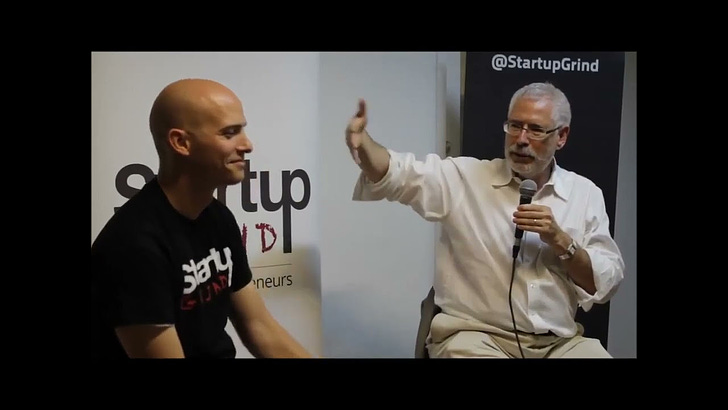The insight I had is all these tools and techniques that investors told you about and business school taught you was all wrong. We didn't even have a language to describe what startups do. They don't execute known business models. Now we have three key pieces of tools for entrepreneurs.
Steve Blank
The insight I had is all these tools and techniques and things that investors told you about and business school taught you. It was all wrong. It was not kind of wrong.
It was completely wrong is that they were telling us that startups were smaller versions of large companies. Yet if anybody's ever been a practitioner, you know, a startup is nothing like a large company. And we didn't even have a language to describe that because the language we had been using was the language we had been taught in business school.
Now. Anybody got an MBA? I teach in business school. And you don't have to apologize.
It's okay, you're in safe company here. But if you really think about it, first business school class in the United States, class of 19, eight at Harvard. And for the last hundred years, business schools were turning out masters of Business Administration.
Let me say it again business administration. We've been building tools to administer and execute known business models. We had no schools at all for what early stage ventures did.
We didn't even have a language to describe what startups do. They don't execute known business models. What you guys are all doing, you're searching for a business model.
We didn't even have a language to say that. We didn't even have a way to say we all kind of knew those stories that, wait a minute, a founder of a startup is not the same as somebody who runs a Fortune 1000 CEO. Yeah, fortune 1000 company.
And we knew that organizations in Fortune 1000 companies are different than startup organizations. And we saw all that evidence. And by the way, my personal one is no business plan survives first contact with customers, right? Anybody ever write a business plan that lasts about an hour, and yet the only people to make you do a business plan, a five year plan, anyone ever do that? Five year plan in the back income statement, balance sheet and cash flow? Only people to make you do a five year plan on a complete series of unknowns were the Soviet Union and venture capitalists.
And we know how well that turns out for both of them. And yet we had no tools to say, well, Steve, if you hate business plans, what else should you come up with? And so I started writing what became the four steps of the Epiphany as my class notes for Berkeley. And my best student Eric Reese said, why don't you publish it so you don't have to keep Xeroxing it for your students? And then Eric, sitting on his board and he became the first practitioner of customer development, said, well, wait a minute, we Steve, we no longer do waterfall engineering.
We do agile engineering. Why don't we couple customer development with agile engineering? And then Alexander Osterwalder wrote Business Model Design. And we now had the Business Model Canvas and the Lean Startup, at least the way I think of it became these three tools.
The business model, canvas to kind of articulate all your hypotheses, a customer development process to get out of the building and test them, and agile engineering so you could build MVPs at the same time you're outside the building. And now we have three key pieces of tools for entrepreneurs and a set of language that we never had. That makes a lot of sense.
Yeah. I mean, it's really completely flipping the normal model upside down and saying…



